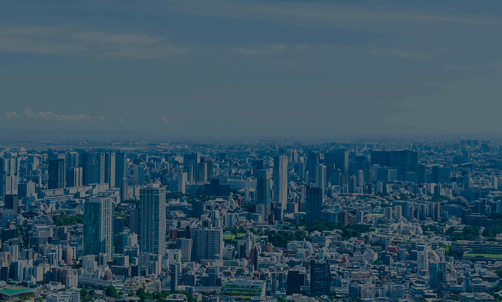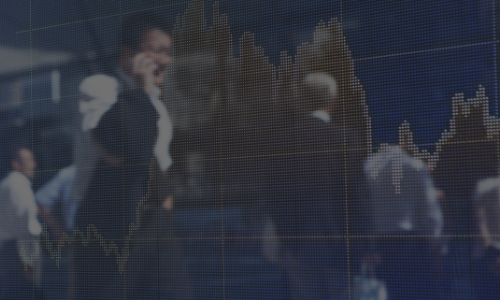- Home
- Sustainability Report
- Mitsubishi Materials Group's Initiatives on Material Issues
- Diversifying procurement of raw materials
Enhancement of Sustainable Supply Chain Management
Diversifying Procurement of Raw Materials
International Issues Surrounding Resources and the Group's Role
Worldwide Demand and Restrictions on Resources
Of all the base metals, copper in particular is used for a wide range of purposes. While there are risks such as short-term metal prices and exchange rate fluctuations, demand is forecast to continue growing over the long term, not least due to infrastructure development in emerging economies.
However, as copper-producing regions around the world are limited and competition for the resource is intensifying, promising production regions are becoming increasingly rare. Recently, policies to protect national resources in resource-holding countries and anti-development campaigns due to growing environmental awareness are on the rise. In addition, newly developed mines require mining at higher elevations and to greater depths, while the quality is lower and also contains more impurities. This has made securing clean copper concentrates a more important challenge than ever.
Sustainable Mine Operation
Since the closure of our domestic Akenobe Mine in 1987, we have been reliant on imports from overseas mines for copper concentrates*, the main raw material used in our products. To reduce the environmental impact caused by mine development and ensure the sustainable development of local communities, when investing in overseas mines we emphasize not only legal and regulatory compliance but a "Social License to Operator" approach, and endeavor to minimize the ecological impact caused by the mines in which we invest. Depending on our level of investment, we also assign personnel to mines in other countries, and provide support to ensure that mines are developed sustainably in the best interests of the environment and the local community.
At the Mantoverde Mine, one of the mines in which we invest, we aim to continually achieve our target of zero accidents involving employees based on our belief that all occupational illnesses are preventable, and all accidents are opportunities for improvement. We strive to strengthen our efforts in this regard through commendations and training provided to employees and contractors.
To learn more about our biodiversity initiatives for overseas mines, see the section on Strengthening measures to address global environmental issues - Biodiversity retention.
- * Copper concentrate: The state mined in the mine is "Ore", but when it is beneficiated and the copper grade is improved, it becomes "Concentrate". "Copper Concentrate" is imported into Japan.
Overseas Copper Mines and Development Projects

- * Figures indicate ownership interest in mines and development projects.
The Growing Importance of Developing Urban Mines
The efficient recycling of resources is becoming increasingly important, in terms of securing stable supplies of metal resources and enabling the sustainable development of society as a whole. In particular, waste electrical and electronic equipment (WEEE), such as televisions, computers and cellular phones contain large quantities of valuable metals such as precious metals and rare metals. These “urban mines”* are also being thrust into the spotlight because they enable highly efficient extraction (recycling) of resources with minimal impact on the environment and local communities compared to natural mines.
In addition to the smelting and refining technologies that our Group has built up over more than a century, for nonferrous metals, we have a wealth of technologies and expertise in recycling, and continue to actively work on recycling, particularly E-Scrap (mainly printed circuit boards and other recyclable materials picked out from dismantled and crushed WEEE).
Alongside our high-level operational expertise and “the Mitsubishi Process,” a unique continuous copper smelting and converting process developed exclusively by Mitsubishi Materials, we have established a global collection network, and are constantly working to improve and reinforce acceptance and processing capacity, as well as services such as our online booking system. In February 2018 we newly established a collection center in the Netherlands, handling activities such as intake, inspection and sampling of E-Scrap. This has increased the Groupʼs annual E-Scrap intake and processing capacity to approximately 160,000 tons.
- * A concept that treats the above-ground accumulation of discarded electronic equipment and other industrial products as resources from which valuable resources can be recovered.
Rolling out E-Scrap Recycling Operations Globally

Acting as a Responsible Partner in Recycling International Resources
In recent years, we have been disposing of large quantities of electric and electronic devices that have outlived their useful lifespan as WEEE. These devices still have potential value as urban mines. However, there are concerns that they could also cause environmental contamination from lead, mercury or other harmful substances if they are processed inappropriately. To address this issue, in 2003 the European Union (EU) introduced a directive to limit volumes, and promote the reuse and recycling of WEEE.
Within the EU, a certification scheme is being put in place for companies throughout the recycling chain, to encourage them to handle WEEE in an appropriate manner. In fall 2016, we became the first company in Japan to obtain certification under the Standard on End-Processing of WEEE Fractions (E-Scrap) at the Naoshima Smelter & Refinery and Onahama Smelter & Refinery (Onahama Smelting & Refining Co. Ltd.).
At the fifteenth Conference of the Parties to the Basel Convention (COP15) in 2022, proposals from Switzerland and Ghana were adopted, placing stricter restrictions on the international movements of WEEE. This and other developments are increasingly promoting the local production and local consumption of recycled resources. The Group will continue to build on the technologies and knowledge developed so far and leverage the strong networks it has developed with suppliers in Japan and overseas to continue to contribute to the sustainable development of society as a leading company in responsible E-Scrap recycling.
Metals Business
The Metals business consists of three areas of business; mining, smelting and refining, and resource circulation. In the mining sector, we invest in overseas copper mines in order to procure a steady supply of copper concentrate. In the smelting and refining sector, we manufacture and sell high quality products, both domestically and overseas, thanks to the Mitsubishi Process, which combines high efficiency with exceptionally low environmental impact. Making the most of the smelting process, we have also established a recycling system for efficiently recovering valuable metals from E-Scrap and other sources, as part of our active commitment to recycling resources. We also provide precious metal bullion products and services under the brand “Mitsubishi Gold,” including our accumulation plan service called “MY GOLD PARTNER” for gold, silver and platinum for individual customers. In the resource circulation sector, we work on a joint basis with partner companies in the operation of recycling plants for waste products such as home appliances and automobiles, while also coordinating with the smelting and refining sector in an effort to expand resource circulation.
Value Chain for the Metals Business

- Naoshima and Onahama Achieved The Copper Mark
-
Naoshima Smelter & Refinery of Mitsubishi Materials Corporation and Onahama Smelter & Refinery of its Group company Onahama Smelting & Refining Co., Ltd. have been assessed under the Copper Mark Assurance Framework and awarded The Copper Mark as of October 4, 2024.
The Copper Mark is a framework developed in 2019 to demonstrate the copper industry's "responsible production" and contribution to the SDGs advocated by the United Nations. The Copper Mark is the leading assurance framework to promote responsible practices across the copper, molybdenum, nickel and zinc value chains. The Copper Mark works with companies and organizations throughout these metals' value chains to enable them to better understand and meet the increasing demands for independently verified responsible practices, and to contribute positively to sustainable development.
We started the procedure for participation in the Copper Mark Assurance Framework in December 2023 and have now achieved the award after an audit by an independent third-party organization. The Group has established key material issues in its Medium-term Management Strategy FY2031 and promoted various initiatives for "contribution to the global environment," "sustainable supply chain management," and "respect for human rights." Attaining The Copper Mark certification is an objective recognition of the steady results of these efforts.The Group set "For people, society and the earth, circulating resources for a sustainable future" as "Our Commitment." Going forward, we aim to realize Our Commitment by taking full advantage of our copper smelters & refineries.

 Naoshima Smelter & Refinery (Kagawa Prefecture)
Naoshima Smelter & Refinery (Kagawa Prefecture) Onahama Smelting and Refining Co., Ltd.
Onahama Smelting and Refining Co., Ltd.
Onahama Smelter & Refinery (Fukushima Prefecture)
Advanced Products Business
Advanced Products Company (APC) operates two businesses in an integrated manner - the Copper & Copper Alloy business and the Electronic Materials & Components business - since they are very similar in terms of market needs and technology development. Taking advantage of our unique technologies, we offer various products in the markets of next-generation vehicles, semiconductor manufacturing, electronics, industrial equipment, robots, and infrastructure, which are our focus market domains.
We supply a wide range of products for semiconductor manufacturing and electronics market as well as automotive industry; oxygen-free copper and advanced copper alloys, lead frames and various other copper products that are essential to handle high current, high voltage and high capacity data communication required to next generation vehicles; solar heat-ray shielding paints that are used mainly for automotive windows to save energy; electronic components such as thermistor sensors; processed silicon products and sealing products for semiconductor manufacturing equipment. In addition, we supply superconducting wires (used for magnetic resonance imaging (MRI) scanners and scientific research), high-performance alloy wires, ECO BRASS® and GloBrass® (an environmentally friendly, lead-free superior machinability brass), and others for the market of industrial equipment, robotics, and infrastructure.
In this way, APC contributes widely to the development of society, like a popularization of new mobility services, by providing high value-added products in response to mega trends.
Value Chain for the Advanced Products Business

Metalworking Solutions Business
We supply cutting tools and cemented carbide products such as construction tools and wear resistant tools that are essential for processing metal parts. We operate manufacturing and sales facilities worldwide, in China, and other parts of Asia, the U.S. and Europe. By providing high value-added products and services that cater to customer needs, underpinned by high levels of technical expertise and reliability, we support manufacturing across various fields and boast the largest domestic market share for cemented carbide products. We are also focused on the collection of used cemented carbide tools. For example, we proactively recycle tungsten, a rare metal that is the main raw material for cemented carbide.
Value Chain in the Metalworking Solutions Business

Renewable Energy Business
In the Renewable Energy business, we contribute to the building of a decarbonized society by providing a stable supply of renewable energy, including geothermal, hydroelectric, solar and wind power.
Affiliated Businesses
We have developed former mining sites for utilization as tourist roadways.
In the Cement business, we have established a wide-ranging business structure, from mining limestone, the main raw material in cement, through to cement plants, transportation, sales, ready-mixed concrete plants, and construction companies, etc. With this structure, we contribute to the development of social infrastructure and undertake global activities via production and sales facilities in Japan and other countries. We also supply high quality products such as low-heat cement, ultra-high strength concrete cement, and non-shrink grout, in addition to regular Portland cement and other general-purpose products. Furthermore, we actively take in difficult-to-treat waste products at our cement plants, and detoxify them using a high-temperature burning process at approx. 1,450ºC. Effectively reusing resources like this enables us to contribute to the establishment of a recycling-oriented society.
- * Effective April 1, 2022, the MMC's Cement business were subject to an absorption-type demerger with Mitsubishi UBE Cement Corporation as the successor company.







